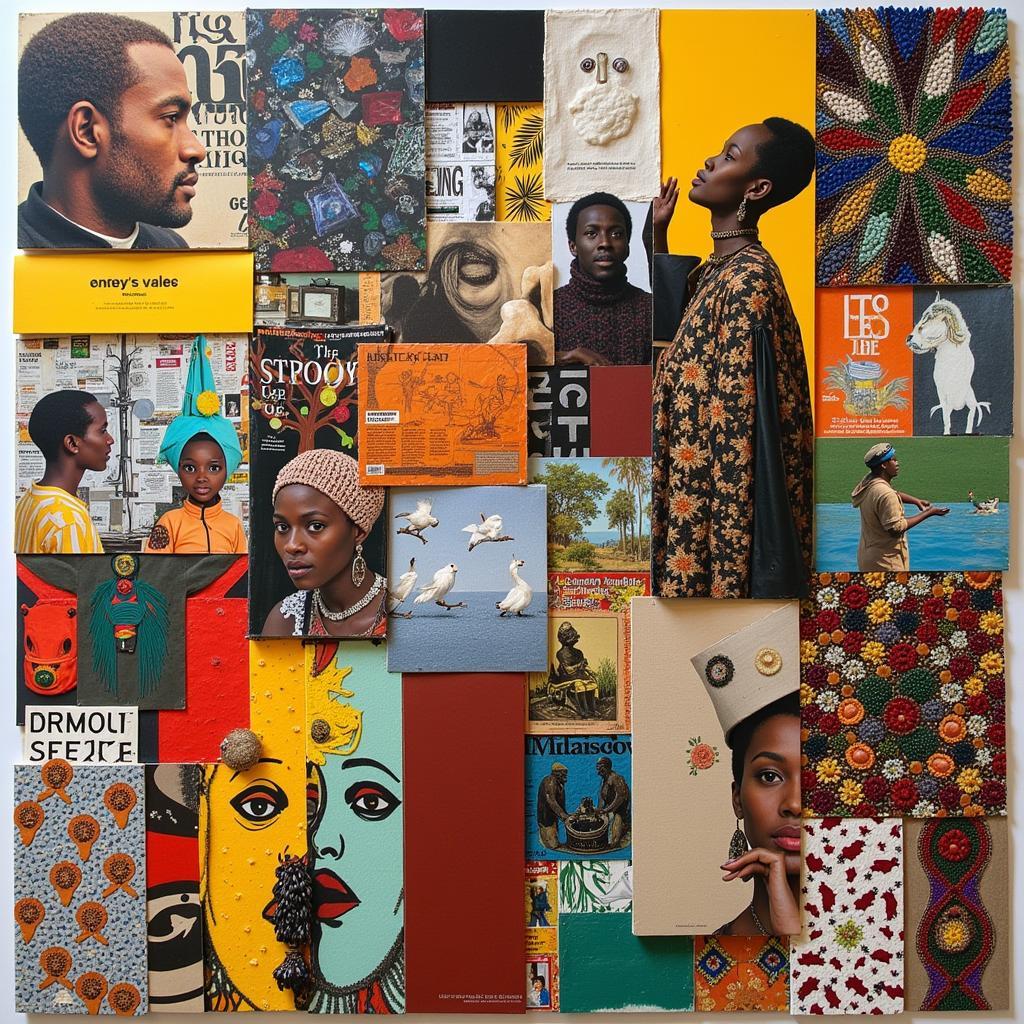Exploring African Cleansing Rituals: A Journey Through Tradition and Culture
African Cleansing Rituals are far more than just physical acts of purification; they represent a profound connection to spirituality, community, and ancestral wisdom. These rituals, diverse and deeply rooted in the continent’s rich tapestry of cultures, offer a fascinating glimpse into the beliefs and practices that have shaped African societies for centuries. From herbal baths to smoke cleansing, these traditions are often integral to healing, protection, and maintaining balance within individuals and communities. We’ll delve into the significance of these rituals, exploring their historical context, diverse forms, and enduring relevance in contemporary Africa. For those intrigued by African beauty traditions, check out these african american beauty secrets.
The Spiritual Significance of Cleansing in African Cultures
Cleansing rituals in Africa are deeply intertwined with spiritual beliefs. They often serve as a bridge between the physical and spiritual realms, facilitating communication with ancestors, deities, and the forces of nature. Many rituals aim to restore balance and harmony, addressing not just physical ailments but also emotional and spiritual imbalances. They are seen as a way to ward off negative energies, purify the body and soul, and attract positive influences. These practices acknowledge the interconnectedness of all things and emphasize the importance of maintaining a harmonious relationship with the spiritual world.
What is the core belief behind African cleansing rituals? They are rooted in the belief that maintaining spiritual purity is essential for overall well-being.
Diverse Forms of African Cleansing Rituals
Across the vast continent of Africa, cleansing rituals take on a multitude of forms, reflecting the unique traditions and beliefs of different ethnic groups. Some common practices include:
- Herbal Baths: These baths, infused with specific herbs and plants known for their medicinal and spiritual properties, are used for physical and spiritual purification. They can be used to treat ailments, cleanse the body after childbirth, or prepare for important ceremonies.
- Smoke Cleansing: Burning specific herbs, woods, or resins is believed to cleanse the air and dispel negative energies. This practice is often used in homes, during ceremonies, and to purify individuals.
- Spiritual Baths: Unlike herbal baths, these focus primarily on spiritual cleansing and involve prayers, incantations, and offerings to deities or ancestors.
- Libations: Pouring liquids, such as water or alcohol, onto the ground as an offering to ancestors or spirits is a common practice in many African cultures. This act symbolizes respect, gratitude, and a request for blessings or guidance.
After a cleansing ritual, individuals often feel renewed and revitalized.
Traditional Cleansing Practices in Specific African Communities
Examining specific communities provides a deeper understanding of the diversity within African cleansing rituals. For instance, the Zulu people of South Africa practice ukuhlamba, a ritual cleansing ceremony involving herbal steam baths and prayers. In West Africa, the Yoruba people have elaborate cleansing rituals using sacred water and herbs, often performed during festivals and life-cycle events.
What are some specific examples of African cleansing rituals? The Zulu ukuhlamba and Yoruba water and herb rituals are just two examples of the many diverse practices across the continent. You may also enjoy videos of traditional African bathing practices: african bathing videos.
The Role of Cleansing in Healing and Protection
Cleansing rituals are often viewed as essential for both physical and spiritual healing. They are believed to remove toxins from the body, strengthen the immune system, and restore balance to the individual. In many cultures, cleansing is also used as a form of protection against negative energies, evil spirits, and misfortune. Rituals are performed before important events, such as weddings or journeys, to ensure a positive outcome.
Are there modern adaptations of these ancient rituals? Yes, many contemporary Africans continue to practice these traditions, often adapting them to modern life while preserving their core essence.
Cleansing Rituals in Contemporary Africa
While some may view these practices as archaic, African cleansing rituals remain relevant in contemporary society. They provide a sense of continuity with the past, reinforcing cultural identity and community bonds. Many Africans, even those living in urban areas, continue to incorporate these rituals into their lives, finding solace and strength in their ancestral traditions. Some are also integrating these practices into wellness routines, recognizing the potential benefits for both physical and mental health. Have you seen any videos about traditional African baths? Check out this african bath video.
Looking for an example of a modern take on African cleansing? Consider the african black soap bamboo charcoal detoxifying foaming facial wash, a product inspired by traditional ingredients. Also, for those interested in contemporary African hairstyles, browse these african ladies haircut images.
Conclusion
African cleansing rituals are a testament to the rich spiritual and cultural heritage of the continent. They are not merely ancient traditions but living practices that continue to hold profound meaning for many Africans. From herbal baths to smoke cleansing, these rituals offer a powerful connection to the past, providing healing, protection, and a sense of belonging. Exploring these diverse practices offers a deeper understanding of African cultures and the profound importance of maintaining a harmonious relationship between the physical and spiritual worlds. African cleansing rituals serve as a vital reminder of the enduring power of tradition and the importance of honoring one’s heritage.
FAQ
-
What is the purpose of African cleansing rituals?
To purify the body and spirit, connect with ancestors, and restore balance and harmony. -
What are some common types of African cleansing rituals?
Herbal baths, smoke cleansing, spiritual baths, and libations. -
Are these rituals still practiced today?
Yes, they are practiced by many Africans, both in traditional and adapted forms. -
What is the significance of herbs in these rituals?
Herbs are believed to have medicinal and spiritual properties that contribute to healing and purification. -
Do African cleansing rituals have any health benefits?
Many believe they offer physical and mental health benefits, though scientific evidence is still being explored. -
How can I learn more about specific cleansing rituals?
Researching specific ethnic groups and their traditions is a good starting point. -
Are there any resources for experiencing these rituals respectfully?
Cultural centers and community organizations may offer opportunities to learn more.
Situations where these questions are commonly asked:
These questions are frequently asked by individuals interested in learning about African culture, spirituality, and traditional healing practices. They may also be asked by those seeking alternative wellness practices or looking to connect with their African heritage.
Further exploration:
For those interested in delving deeper into African culture, explore our articles on traditional music, art, and cuisine.
Contact us:
For any assistance, please contact us at Phone: +255768904061, Email: kaka.mag@gmail.com or visit us at Mbarali DC Mawindi, Kangaga, Tanzania. Our customer service team is available 24/7.

